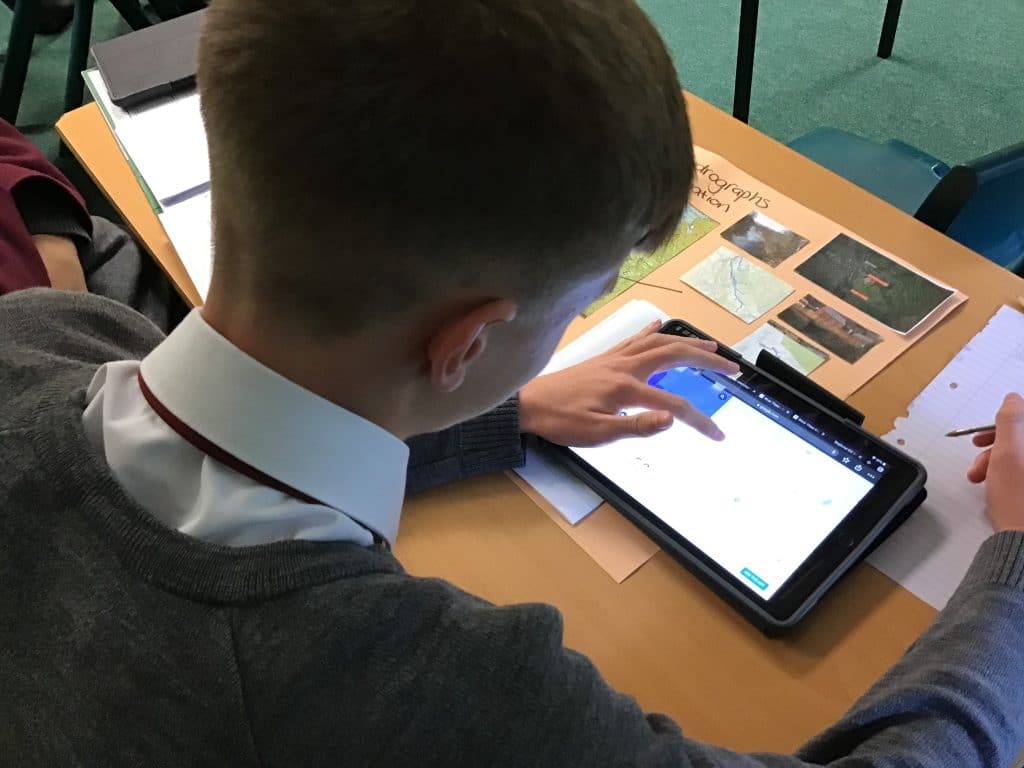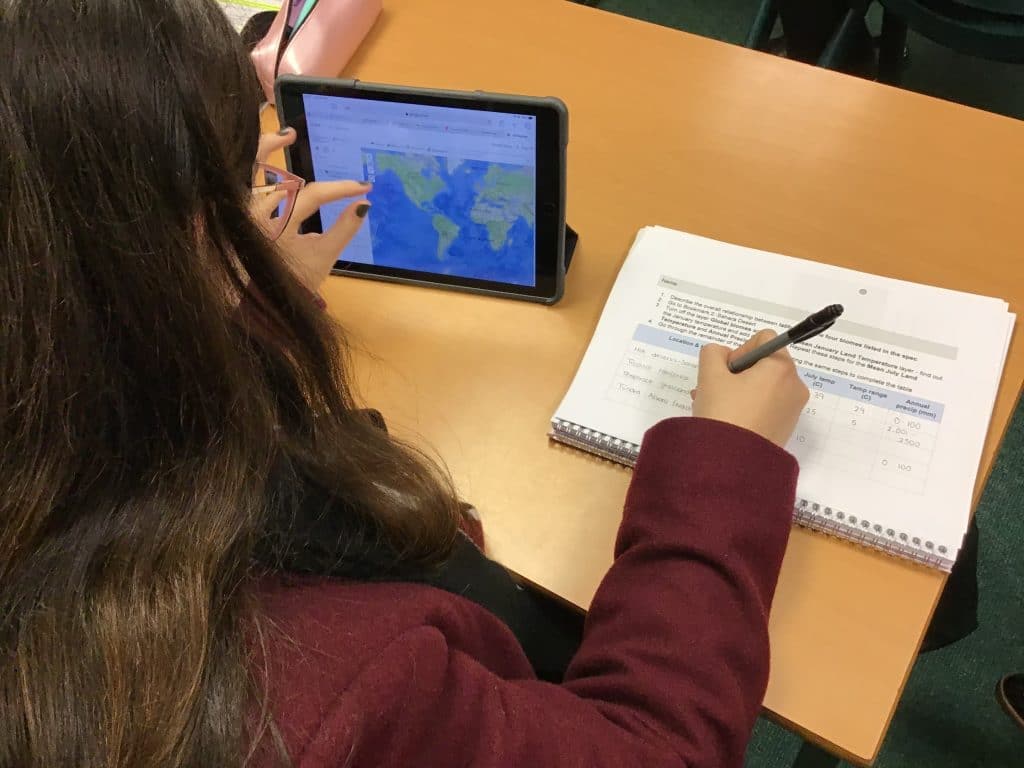Introduction and Ethos of Department
Highest standards of global education for all to create tomorrow’s sustainable society.
Geography is a study of the nature of the Earth’s surface and of the relationships between man and the environment. It involves the identification of spatial patterns and the location factors associated with them. In addition, Geography also examines different cultures at local, national and global scales. It promotes the acquisition of a wide variety of skills which enable the individual to make informed and reasoned judgment.
Geography helps us to view the world in which we live, both locally and globally, in a Holistic way, by exploring the interdependencies of natural, social and economic systems. Through engagement with issues which have relevance to pupils, teachers can help them see the importance of geographical knowledge to their lives now and in the future.
Staff & Positions
Subject Leader
Mrs Patterson
Subject Teachers
Mr Dunlop and Mrs Bonar
Key Stage 3
Overview
The Northern Ireland Curriculum aims to empower pupils to achieve their potential and to make informed and responsible choices and decisions throughout their lives. It is about helping all pupils prepare for life and work:
- as individuals;
- as contributors to society;
- as contributors to the economy and the environment.
Geography has a significant role to play in this. Many pupils have a keen interest in trying to understand major issues that directly affect their lives and their communities. In addition they have a concern about what is happening in other parts of the World. Pollution, migration, climate change, global poverty and natural hazards are commonplace news items. These issues highlight how change in one part of the world Influences, and is influenced by, what happens in another part.
Assessment throughout the Year
The Geography department assesses each individual learner each half term. Assessments take varied forms such as writing a newspaper article or sitting a written test. Each assessment is differentiated in order to meet individual learner learning needs and to allow each learner to achieve their full potential.
Homework
Within the Geography department students will be set two homework tasks each two week cycle. Tasks are differentiated to allow each individual learner achieve their potential. Students are able to submit homework tasks by email if they so desire to avoid computer malfunction preventing submission.
Key Stage 4
Overview
“This is a great age for geography. Very big questions – climate, poverty, disease, migration, water, energy, biodiversity – all demand geographical analysis, as do specific national issues in the UK, like housing, social deprivation, flooding and regional development. As the population grows, and with pressures on the Earth’s systems increasing, geography has never been so important.”
Nicholas Crane (RGS-IBG President)
CCEA GCSE Geography – This course is composed of three units. In year 11 learners will study ‘understanding our natural world’ which consists of learning about the dynamic landscape, changing weather, and the restless earth. Learners will begin unit three which is their fieldwork report which includes fieldwork during the summer term of year 11. When learners return for the second year of the course in year 12, they will then study ‘living in our world’. This unit examines people and where they live, contrasts in world development, and managing our resources.
| YEAR 11 | YEAR 12 |
|---|---|
| Unit 1: Understanding our Natural World Unit 3: Fieldwork | Unit 3: Fieldwork Unit 2: Living in Our World |
The study of GCSE Geography will give students the opportunity to develop communication skills, graphical and cartographical skills, technological skills including ICT, interpersonal skills through debate and discussion, literacy and numeracy skills, problem-solving skills, entrepreneurial skills and awareness of career possibilities.
Why Study Geography?
In studying this course you will:
- take part in fieldwork collecting data at first hand;
- explore the interrelationships between people and their environments;
- investigate how physical and human resources are managed;
- consider interdependence between countries and the need for cooperation to tackle global issues; and
- have opportunities to use geographical skills including appropriate technologies such as GIS.
A Level Geography
The CCEA GCE Geography gives students a broad knowledge and understanding of the processes and challenges facing our world. Many of the world’s current issues, globally and locally, are the result of geography. Geographers help us to understand issues such as climate change, food and energy security, soil degradation, spread of disease, causes and consequences of migration, and how economic change affects places and communities (CCEA).
This course is composed of six units. In Year 13 learners will study:
- AS1 Physical Geography (River environment, Atmospheric processes, and Global Ecosystems)
- AS2 Human Geography (Population issues, Urban Issues and Rural Issues) and
- AS3 Fieldwork Skills.
When learners return for the second year of the course in Year14, they will then study:
- A1:1 Physical Geography (Tectonics and Climate Change)
- A2:2 Human Geography (Ethnic Geography and Tourism) and
- A2:3 Decision making in Geography.



